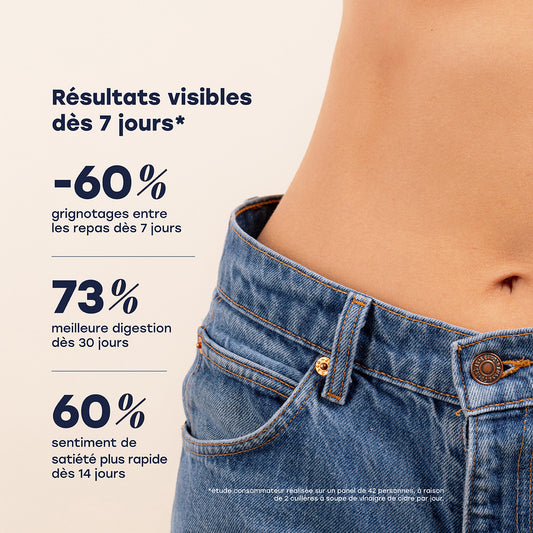Blood sugar spikes, or hyperglycemia, occur when blood glucose levels rise rapidly. These fluctuations can have harmful consequences, especially for people with diabetes. Understanding the mechanisms behind these spikes and how to prevent them is essential to maintaining good health. In this article, we will explore in detail what a blood sugar spike is, the causes, symptoms, and effective prevention methods.
What is a blood sugar spike?
A blood sugar spike occurs when blood glucose levels rise quickly after eating certain foods or due to other factors such as stress or lack of exercise. Normally, the pancreas releases insulin to help cells absorb glucose and use it for energy. However, when glucose rises too quickly, the pancreas may have difficulty producing enough insulin to regulate these sugar levels. This can cause an overload on the body and, in the long term, damage various organs and systems.

What causes blood sugar spikes?
The influence of diet
Diet plays an important role in managing blood sugar. Eating foods high in simple carbohydrates, such as sweets, sugary drinks, and white flour products, can cause rapid spikes in blood sugar. These foods are quickly digested and absorbed, causing blood glucose levels to rise quickly. In contrast, foods high in fiber and complex carbohydrates, such as vegetables, whole fruits, legumes, and whole grains, are digested more slowly, helping to maintain stable blood sugar levels.
Foods to favor
To maintain stable blood sugar levels, it is recommended to eat foods with a low glycemic index. Low glycemic index foods release glucose slowly and steadily into the bloodstream.
Green vegetables : spinach, broccoli, kale
Whole fruits : apples, berries, citrus fruits
Legumes : lentils, chickpeas, black beans
Whole grains : oats, quinoa, brown rice
Lean proteins : chicken, fish, tofu
Nuts and seeds : almonds, chia nuts, flax seeds
Foods to avoid
Certain food categories are particularly likely to cause blood sugar spikes and should be consumed in moderation:
Refined sugars : sweets, pastries, desserts
Sugary drinks : sodas, fruit juices, energy drinks
White flour products : white bread, white pasta, white rice
Processed snacks : chips, biscuits, cakes
The role of physical activity
Physical activity helps use glucose as an energy source, which can help stabilize blood sugar levels. Lack of exercise can therefore promote spikes in blood sugar, especially after high-carb meals. Exercise increases the sensitivity of cells to insulin, which allows for better glucose uptake by muscles and a reduction in blood sugar levels.
Types of beneficial exercises
Aerobic exercises : brisk walking, jogging, swimming, cycling
Resistance exercises : strength training, exercises with elastic bands
Moderate intensity exercises : yoga, Pilates
The impact of stress and sleep
Stress and lack of sleep can affect the production of hormones like cortisol and adrenaline, which can increase blood sugar levels. Cortisol, in particular, stimulates the liver to produce glucose and reduces insulin sensitivity. Stress management and good sleep hygiene are therefore crucial to avoid blood sugar fluctuations.
Stress management techniques
Meditation : Regularly practicing meditation techniques can reduce stress and cortisol levels.
Yoga : Yoga combines physical postures, breathing and meditation to reduce stress.
Physical exercise : Regular physical activity is a great way to reduce stress.
Hobbies and leisure : Spending time on enjoyable activities can help reduce stress levels.
Importance of sleep quality
Quality sleep is essential for regulating blood sugar. Here are some tips to improve sleep quality:
Establish a sleep routine : Go to bed and get up at the same time every day.
Create an environment conducive to sleep : dark, quiet and cool room.
Avoid stimulants : limit caffeine and screens before bed.
Practice relaxation techniques : deep breathing, reading, hot bath.

Symptoms of a Blood Sugar Spike
Recognizing the warning signs
Signs of a blood sugar spike may include excessive thirst, frequent urination, unusual tiredness, and blurred vision. Being aware of these symptoms can help you take action quickly to avoid complications. Other signs may include feeling hungry even after eating, increased irritability, and difficulty concentrating.
Short term symptoms
In the short term, a spike in blood sugar can cause nausea, headaches, and feelings of extreme fatigue. Other symptoms include:
Blurred vision : due to dehydration of the eye lenses.
Frequent infections : High glucose levels can weaken the immune system.
Slow wound healing : High sugar levels can affect circulation and tissue repair.
The long-term consequences of poorly controlled blood sugar levels
In the long term, poorly controlled blood sugar levels can lead to serious complications such as cardiovascular disease, nerve damage, kidney problems and impaired vision.
Diabetic neuropathy : Nerve damage that can cause pain, numbness, and digestive problems.
Diabetic nephropathy : kidney damage that can lead to kidney failure.
Diabetic retinopathy : Damage to the blood vessels in the retina that can lead to vision loss.
Cardiovascular disease : increased risk of heart attack, stroke and high blood pressure.

How to prevent blood sugar spikes?
Take care of your diet
To prevent blood sugar spikes, it is recommended to eat a diet rich in fiber, protein, and complex carbohydrates. Fiber slows down the absorption of glucose, while protein and healthy fats help stabilize blood sugar. Here are some tips for taking care of your diet:
Meal planning : Organize your meals to include a variety of nutritious foods.
Watch portions : Avoid consuming large amounts of carbohydrates at one time.
Eat at regular intervals : Eat meals and snacks at regular times to avoid blood sugar spikes and dips.
Drink enough water : Staying hydrated helps maintain stable blood sugar levels.
Drink cider vinegar : cider vinegar and the acetic acid it contains are known to help smooth out blood sugar spikes; a tablespoon before each meal can reduce a future blood sugar spike by 30%.
Discover all the benefits of cider vinegar.
Have regular physical activity
Regular exercise, such as walking, swimming, or cycling, can improve insulin sensitivity and help maintain balanced blood sugar levels. It is recommended to engage in moderate to vigorous physical activity several times a week.
Find an enjoyable activity : Choose an activity that you enjoy to stay motivated.
Vary the exercises : alternate between aerobic and resistance exercises.
Set realistic goals : start slowly and gradually increase the intensity and duration of the exercises.
Exercise in a group : Work out with friends or join a fitness club to stay motivated.
Managing your stress and the quality of your sleep
Stress management techniques such as meditation, yoga or deep breathing can help reduce cortisol levels. Ensuring good quality sleep, with regular bedtimes and an environment conducive to rest, is also crucial.
Practice gratitude : Keep a gratitude journal to focus on the positive aspects of life.
Limit stressors : identify and reduce sources of stress in your daily life.
Take time for yourself : allow yourself moments of relaxation and leisure.

Specific tips for times of day
Avoid morning blood sugar spikes
To avoid morning blood sugar spikes, it is important to eat a balanced breakfast, rich in protein and fiber, and to avoid sugary foods.
Focus on proteins : eggs, Greek yogurt, cottage cheese.
Add fiber : whole fruits, vegetables, oats.
Limit fast carbohydrates : avoid sugary cereals, pastries, fruit juices.
Drink a tablespoon of cider vinegar : in the morning, cider vinegar on an empty stomach gives the body a boost and regulates blood sugar levels.
Managing your blood sugar after meals
After meals, it is recommended to take a short walk or engage in light physical activity to help regulate blood sugar levels. Avoiding sugary desserts and choosing reasonable portions of complex carbohydrates can also help.
Divide meals : Eat several small meals throughout the day rather than large meals.
Include vegetables : Add vegetables to every meal to increase fiber intake.
Drink water : Drink a large glass of water before and after meals to aid digestion and absorption of nutrients.
Avoid nighttime blood sugar spikes
To avoid nighttime blood sugar spikes, it is advisable to eat a light, balanced dinner, avoid sugary snacks before bedtime, and ensure that the last meal of the day is eaten at least two to three hours before bed.
Prioritize proteins and fibers : fish, vegetables, quinoa.
Avoid fast carbohydrates in the evening : limit pasta, white rice, sugary desserts.
Do relaxing activities : read a book, take a hot bath, listen to soothing music before going to sleep.
Drink a tablespoon of cider vinegar : before the last meal of the day, cider vinegar helps regulate blood sugar levels and limit its impact during the night.
By following these tips and adopting a healthy lifestyle, it is possible to prevent blood sugar spikes and maintain good health in the long term. Dietary adjustments, regular physical activity, stress management and improving sleep quality are key elements to maintain stable blood sugar levels and avoid associated complications.






















